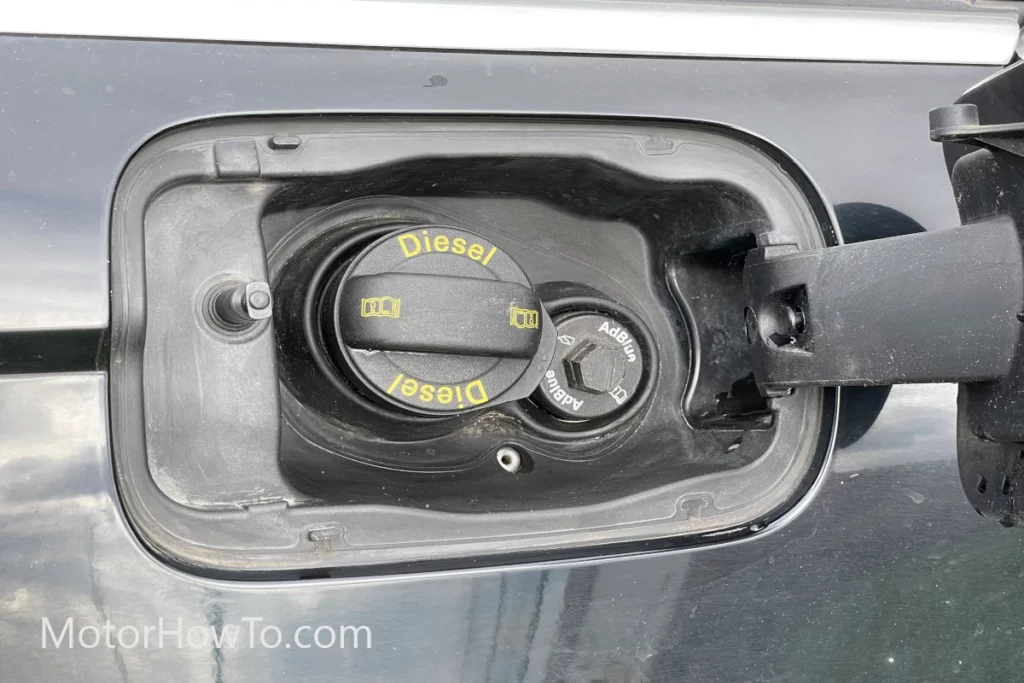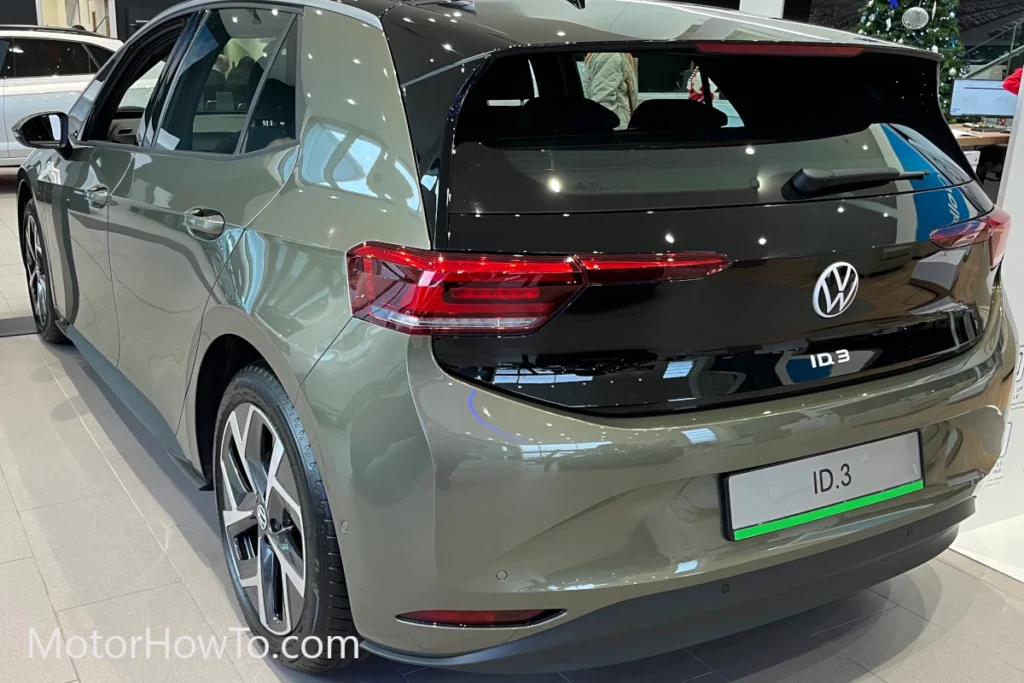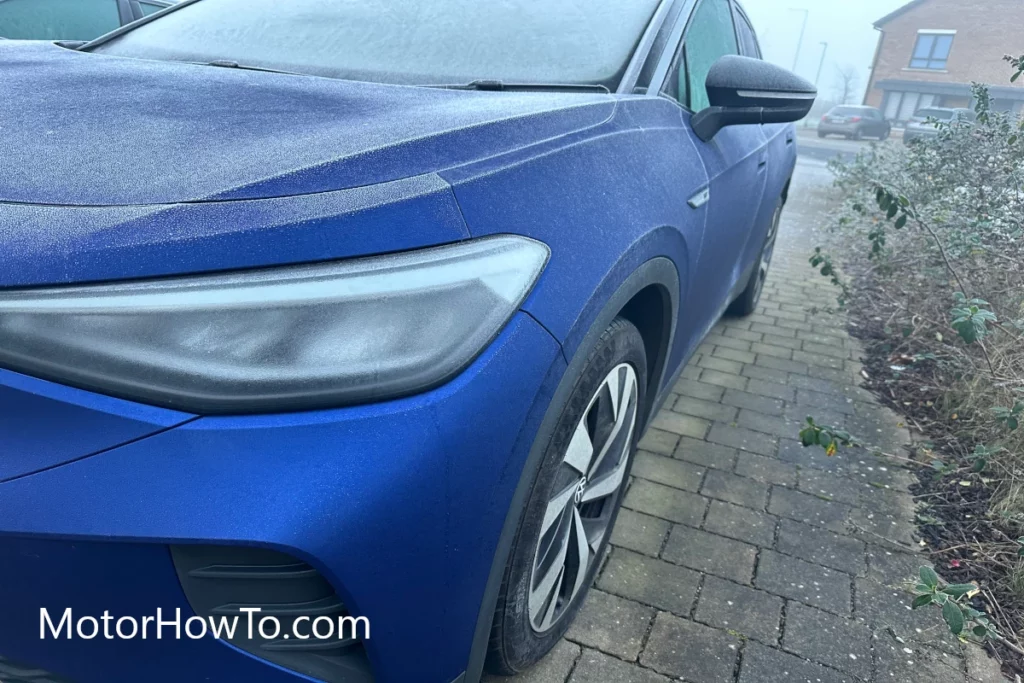Many drivers and car owners strive to keep their diesel-fueled engines on the right track of emission laws by looking for more aggressive ways to avoid the release of harmful gases from the tailpipes.
In that regard, a technology known as Selective Catalytic Reduction (SCR) is usually employed to help cut off harmful substances.
Now, the Diesel Exhaust Fluid (DEF) or AdBlue usually comes in to facilitate the selective catalytic reduction (SCR) process and helps to reduce the amount of nitrogen oxide. This technology is mostly seen in European vehicles, with strict emission laws.
But now, with all these terms, most drivers and car owners wonder if diesel exhaust fluid (DEF) is the same as AdBlue. This article will help you understand better if the two are the same. Let’s go!
Let’s Find Out if Diesel Exhaust Fluid (DEF) is the Same as AdBlue
Yes, Diesel Exhaust Fluid (DEF) is similar to AdBlue. AdBlue is mainly a trading name that has become the common vernacular. The other name is diesel exhaust fluid which is a fluid that typically allows the process known as selective catalytic reduction. So, the two are the same.
- Let's Find Out if Diesel Exhaust Fluid (DEF) is the Same as AdBlue
- How Does Diesel Exhaust Fluid (DEF) or AdBlue Work?
- What Does the Diesel Exhaust Fluid (DEF) or AdBlue Do?
- Can You Still Drive If You Run Out of Diesel Exhaust Fluid (DEF) or AdBlue?
- Which Cars Use Diesel Exhaust Fluid (DEF) or AdBlue?
- Where Do I Buy Diesel Exhaust Fluid (DEF) or AdBlue?
- Conclusion
- Sources

The AdBlue targets the exhaust’s nitrogen oxide amount and strives to reduce it. Alternatively, various sensors in the exhaust system usually oversee the amount of exhaust gases when needed. DEF is sprayed into the exhaust system to help remove nitrogen oxide (NOx)
DEF is a mixture of urea and distilled water that causes the SCR reaction.
Urea is usually made up of ammonia and reacts with nitrogen oxide together with the catalyst and breaks it down. So, the end product is usually nitrogen and water, not harmful nitrogen oxide.
Regarding consumption, your engine consumption of DEF is pretty low, just about 2 to 5% of the total fuel consumption. In the case of a Ford Everest, an 18-liter tank will take care of 2400 km while driving. Other cars usually have an adequate range and only need top-ups during service time.
It is also vital to note that if your car tank does not have DEF fluid, it may not start. Also, under excess working conditions, the consumption will increase with fuel usage. The SCR technology has allowed diesel-powered cars to become marketable and has made manufacturers to be efficient and give great-performance diesel-powered cars.
Related:
- Can Car Exhaust Kill Grass, Plants, and Insects? (Might Surprise You)
- Do Car Exhaust Fumes Rise Or Fall? (Explained For Beginners)
- What Is Eisenmann Exhaust In A Car? (Explained For Beginners)
How Does Diesel Exhaust Fluid (DEF) or AdBlue Work?
First, the DEF contains 32.5% urea and 67.5% good-quality de-mineralized water(de-ionized). So, the most utilized portion of DEF is the urea which is like urine. The remaining part is de-ionized water, where mineral ions like chloride, iron, and sodium are normally eliminated. They are usually removed because the chemical reaction is usually quite sensitive and precise to the chemical balance of any impurities or fluid.
A well-operating diesel exhaust will begin by flowing into an oxidizing catalytic converter that changes the pollutants hydrocarbon and carbon monoxide to water (H2O) and carbon dioxide (CO2). Your diesel exhaust will flow through the diesel particulate filter, eliminating the particulates.
Then moves to the SCR, where you spray the DEF through the exhaust after the water component evaporates hence assisting in spreading the urea evenly.
Then urea will break down into carbon dioxide, and ammonia and nitrogen oxide will be changed by ammonia into nitrogen and water. Mostly about 90% of NOx is usually eliminated by this process.
The DEF operates on about 1-4% of diesel, so you can estimate that for each 100 L of diesel you use, you can expect to utilize about 1-4 liters of DEF.
Currently, you can use SCR in almost all diesel-engine vehicles. It has become really common in light commercial vehicles and passenger vehicles. It is a must to have an SCR component for you to meet the EURO 6 emissions standards.
What Does the Diesel Exhaust Fluid (DEF) or AdBlue Do?
DFE is usually needed for selective catalytic reduction. This fluid is filled into your car’s exhaust system, where the urea is broken down into carbon dioxide and ammonia. The ammonia then reduces the amount of nitrogen oxide by changing it into nitrogen and harmless water. After that, it is released into the atmosphere through your exhaust system.
So, generally, the work of AdBlue is to prevent the emission of harmful gas (nitrogen oxide) by converting it into nitrogen and water. Often, you only need a small amount of AdBlue to complete your journey. Typically, a full tank of DEF will last you for many miles of driving.
Always ensure you add it to a separate AdBlue tank. Its cap is adjacent to the diesel cap but sometimes below the bonnet. Always use your handbook or manual since it covers any fitted AdBlue technology.
Maintain care to avoid any contamination of the AdBlue tank. Adding diesel fuel to the AdBlue tank may seriously impact your SCR performance. Also, if you contaminate the diesel tank using AdBlue, it may have negative implications.
You should know the amount of AdBlue left on your vehicle while driving. Normally, every vehicle using AdBlue has a display somewhere above the dashboard or your trip computer highlighting what is left.
You can always consult your manual to know where it’s located if you can’t find it. It always gives a warning light signal on the driver’s display just before your AdBlue tank goes empty.
Can You Still Drive If You Run Out of Diesel Exhaust Fluid (DEF) or AdBlue?
Yes, you can still drive even if you run out of AdBlue. However, some engines may limit engine efficiency when the supply of AdBlue is limited. Suppose your exhaust is fitted with SCR technology.
In that case, your car will end up having a power drop, and there will be a reduction in the emission of harmless substances when you don’t have AdBlue in your tank, which is disadvantageous to the legal criteria.
Your vehicle’s performance will be restored when you add AdBlue to the tank again.
Note: Some engines may not start when you run out of AdBlue. So always ensure you have an emergency supply onboard without switching off your engine.
If you turn off the engine, your car will not start when you don’t have AdBlue. It is a criterion of the EU6 emissions legislation and is usually applied to all car types. You will have to refill the AdBlue tank with a minimum amount being about 3-5 liters of AdBlue so that your car may start.
However, it is not a guarantee for some car models to require a full tank of AdBlue. Other cars may require the system to be purged and reset.
Always ensure you don’t use water instead of AdBlue or add water down the AdBlue. It is wrong. DEF is mainly a blend of urea and de-ionized water. In that regard, normal water contains lots of minerals and ions that harm the car’s exhaust treatment system.
In addition, do not use old AdBlue while driving. It is crucial to note that AdBlue deteriorates with time. Please don’t use it when it has passed its expiry date. It would be best if you did not keep large quantities at your home unless you usually cover very long mileage.
The ultraviolet light usually fastens the AdBlue deterioration, damaging your exhaust system’s delicate catalyst. That’s why buying bottles of AdBlue that have been on the shelves outside the petrol station may not serve you best. Instead, always purchase bottles stored indoors or in the dark.
Which Cars Use Diesel Exhaust Fluid (DEF) or AdBlue?
To meet European emissions regulations, you must fit all diesel cars with DEF technology (Euro 6). Additionally, here are other cars that use DEF or AdBlue. Take a look.
- Car engines above 1.6-liters in amount can use AdBlue technology.
- Manufactured Audi, Volkswagen, Peugeot, Mercedes, Citroen, and jaguar.
- Several diesel-powered vehicles manufactured since 2006 also use DEF.
- Manufacturer’s buses, lorries, and agricultural vehicles.
You can also check if your car uses AdBlue by confirming whether you see the word AdBlue or SCR on the car’s name.
For example, cars like Citroen and Peugeot, which usually use AdBlue, have a badge called BlueHDi. While in the case of Fords, they are usually badged Eco Blue. You will also see a badge on Volkswagens named TDI SCR.
You can also open the filler flap and assess whether there is a blue-capped AdBlue filler. If you can’t see one, you can inquire from the manufacturer or the dealer.
Where Do I Buy Diesel Exhaust Fluid (DEF) or AdBlue?
You can buy DEF liquid at filling stations via an AdBlue nozzle. Also, you can buy a bottle of AdBlue from reputable sellers and add it to your tank.
Always use your car’s manual to fill the AdBlue appropriately, including the maximum or minimum refill amount.
Regarding the price, it usually varies significantly. Many people usually wonder if it’s the same because of differences in manufacturers and dealers. Always ensure you are using the right diesel exhaust fluid by:
- Purchasing the DEF from reputable retailers.
- Check for the word AdBlue according to ISO 22241″ on top of the can or dispensing system. You may also see the word ISO-22241-1, ISO-22241-3 or ISO-22241.
- Be on checkout for similar brands that may pose to be of good quality, and they are not.
- Don’t get AdBlue sold at very low prices.
- Always engage a professional to ensure you are getting the best.
To refill the AdBlue in the tank, first, you need to locate the tank. It can be found in the boot, next to the fuel filler, or under the bonnet.
Next, use an AdBlue can to assist you with refilling the AdBlue tank. Mostly the cans are equipped with a pouring spout.
You can also visit a filling station that contains an AdBlue pump. You only need to position your car beside the pump and use its nozzle to drain the liquid into the AdBlue tank. You use the pump if your AdBlue is positioned next to the fuel filler.
Conclusion
Diesel exhaust fluid (DEF) is the same as AdBlue. Many latest vehicles that meet the standards of European emissions are normally fitted with AdBlue. This fluid helps to remove harmful substances like nitrogen oxide (NOx) from your car’s exhaust system.
AdBlue is a mixture of de-ionized water and urea, which is non-toxic. Diesel engines need to run clean. That’s why many vehicles, buses, and lorries usually use AdBlue to avoid violating emission legislation.
Sources
What is AdBlue? Diesel Exhaust Fluid (DEF) Explained



